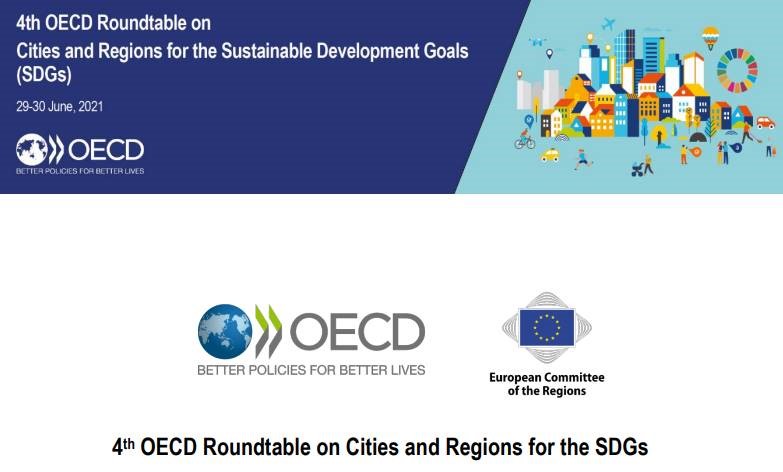After partaking in the prior OECD Roundtables on Cities and Regions it was a pleasure to be part of the community that comprised the 4th OECD Roundtable on Cities and Regions for the SDGs on the theme of a Framework for COVID-19 recovery in Cities and Regions.
Recovery is high on the agenda after the disrupting forces unleased by the recent COVID pandemic. A challenge that transcends form the individual to the firm level, to the city and regional level and back, introducing a relational complexity that is unprecedented. Hence it is great to see the many initiatives that allow firms, cities and regions veer back from the COVID driven turmoil they went through over the past year. A key takeaway from this roundtable has been the role of digital technologies to facilitate the swift recuperation. Technology allows for the communications and lessons learned and shared during this very OECSD hosted roundtable, but there is more to it.

With digital ecosystems operating beyond organizational and industry boundaries, as facilitator for organizational (firms, cities and regions alike) resilience, such reorientation comes with advanced interdependencies. The management literature provides for some interesting lessons on this front. Reviewing some of the work that has passed by over the last decade, lessons can be learned. Organizations that find themselves in dire circumstances can improve their situation despite these ecosystem interdependencies, however, for instance by proactively implementing strategic change to stem survival-threatening performance decline. While firms’ propensity to reshape under external and internal pressure has received increasing scholarly attention (e.g. Bowman and Singh, 1993; McKinley and Scherer, 2000; Girod and Whittington, 2015), digital ecosystem dynamics have remained relatively understudied as a mechanism facilitating such organizational transitioning (Pagani, 2013).

Our current understanding of how orgnaizations reshape themselves as part of their digital ecosystems is limited however by the lack of a strong theoretical base to understand the implications of digital technology on extant theories and knowledge of organization restructuring as part of a digitally enabled environment (Adner, 2006; Kane et al., 2015). As firms no longer operate in isolation but operate in digital ecosystems that determine the way and magnitude to which a firm can transform a firm’s core architecture and the way it serves its customers (Tangpong et al. 2021). Though there has been more attention to the dynamic nature of business ecosystems in general terms, several scholars have argued that more work is needed to understand reciprocal relationships, timing and causal effects of these events, calling for further attention for dispositional, behavioral and contextual influences (e.g. Quintane et al., 2014). Equally, extant research on turnaround management typically focuses on traditional outcomes (e.g., profits), and antecedents, (e.g. time and pace of change) with less emphasis on the technological advancements that may foster or hamper the extent to which organizations manage to individually or collectively reshape. On both fronts surprisingly little is known however about the organizational, temporal, and ambidexterity dimensions in digital ecosystems as they endure exogenous tremor. This challenge has recently infused several members of our Centre to shine new light on the challenges and opportunities posed by digital driven business ecosystem collaboration as firms collaboratively are forced to reinvent themselves. Thank you to the organizers of the 4th OECD Roundtable on Cities and Regions for the SDGs On that note for bringing further inspiration to this initiative.
Dr. Rick (H.L.) Aalbers